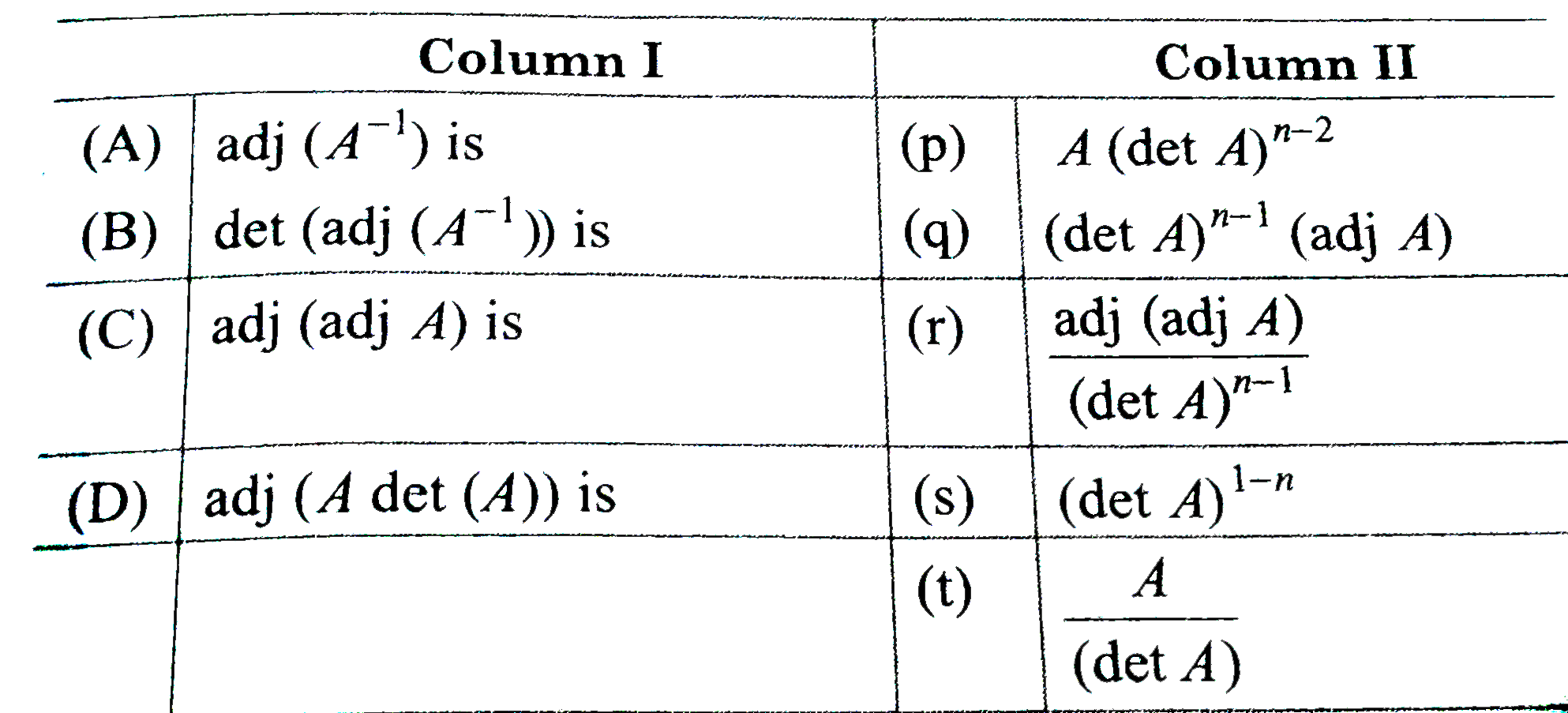If A is a non-singular matrix of order n, then A(adjA)=
A
I
|A|In
|A|2In
The correct Answer is:C
To solve the problem, we need to find the expression for A⋅adjA where A is a non-singular matrix of order n.
1. Understanding Non-Singular Matrix:
A non-singular matrix A is one whose determinant is not equal to zero, i.e., det(A)≠0.
2. Definition of Adjoint:
The adjoint (or adjugate) of a matrix A, denoted as adjA, is defined such that:
A⋅adjA=det(A)⋅In
where In is the identity matrix of order n.
3. Applying the Definition:
Since A is non-singular, we can use the above property directly:
A⋅adjA=det(A)⋅In
4. Conclusion:
Therefore, the expression A⋅adjA simplifies to:
A⋅adjA=det(A)⋅In
Final Answer:
A⋅adjA=det(A)⋅In
A non-singular matrix A is one whose determinant is not equal to zero, i.e., det(A)≠0.
The adjoint (or adjugate) of a matrix A, denoted as adjA, is defined such that:
A⋅adjA=det(A)⋅In
where In is the identity matrix of order n.
Since A is non-singular, we can use the above property directly:
A⋅adjA=det(A)⋅In
Therefore, the expression A⋅adjA simplifies to:
A⋅adjA=det(A)⋅In
A⋅adjA=det(A)⋅In
Topper's Solved these Questions
Similar Questions
Knowledge Check
If A is a non-singular matrix of order 3, then |adj A| = |A|n here the value of n is
A2B4C6D8If A is a non-singular matrix of order 3, then adj(adj(A)) is equal to
AABA−1C1|A|AD|A|AIf A is a non-singular matrix of order 3, then ∣∣adjA3∣∣=
A|A|9B|A|12C|A|3D|A|6
If A is a singular matrix of order n, then A(adjA)=
View SolutionIf A is a non-singular matrix of order n×n, then : |adj⋅A|=
View SolutionIf A is a singular matrix of order n, then (adjA) is
View SolutionIf A is a non singular matrix of order 3 then|adj(A)|=……………
View SolutionIf A is a non-singular matrix, then
View Solution

